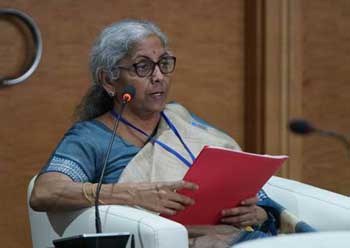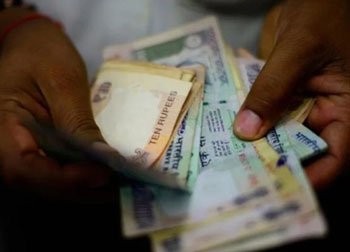INVC NEWS
New Delhi : As the anticipation builds around the upcoming Lok Sabha elections 2024, the Finance Ministry of India is already laying down the groundwork for the comprehensive budget for the fiscal year 2024-2025. Despite the exact dates of the elections remaining undisclosed, the Ministry is proactively initiating steps to ensure a smooth transition into the new financial year.
Early Initiatives for Fiscal Planning
While major policy shifts and announcements are typically deferred until after the new government takes office, sources within the Finance Ministry reveal that preliminary discussions and assessments are underway. Notably, the Ministry is actively considering various proposals pertaining to taxation, sourced from industry stakeholders.
An industry insider shared insights, highlighting that while formal deliberations with industry representatives might await the formation of the new government, preparatory measures for the budget are already in motion. The interim budget, commonly known as the Vote on Account, previously outlined provisional financial allocations to sustain governmental operations until the new administration settles in.
Post-Election Budget Projections
Following the culmination of the general elections slated for April-May, the incoming government will present a comprehensive budget covering the remainder of the financial year. Additionally, the government is poised to introduce interest-free loans spanning 50 years to states, aimed at bolstering economic reforms.
Timeline for Budget Presentation
Sources familiar with the matter indicate that the full budget for the fiscal year 2024-25 is slated for presentation in June or July. Concurrently, the Finance Ministry is formulating a vision document delineating objectives for the initial 100 days post-elections. Furthermore, strategic endeavors are underway to realize the vision of a developed India over the ensuing five years.
Emphasis on Infrastructure and Capital Expenditure
The government’s steadfast commitment to infrastructure development and capital expenditure is expected to persist in the upcoming budget. In a recent statement, Finance Minister Nirmala Sitharaman affirmed the government’s intent to drive further reforms during its third term.
Sitharaman articulated plans to accord special attention to digital infrastructure, in addition to conventional factors such as land, labor, capital, and entrepreneurship. Emphasizing the significance of digital frameworks in contemporary production dynamics, she underscored their pivotal role in the forthcoming wave of reforms.
Fiscal Objectives and Deficit Management
February witnessed the interim budget presentation, with a key focus on fortifying the national treasury. The government’s strategic emphasis on fiscal prudence aims to cap the fiscal deficit below 4.5 percent of the gross domestic product (GDP) by 2025-26, a testament to its commitment to sound financial stewardship.
Estimates project the fiscal deficit for the fiscal year 2024-25 at 5.1 percent of GDP, reflecting a concerted effort to gradually rein in deficit levels. Despite challenges posed by the ongoing fiscal year, proactive measures are underway to streamline expenditure and revenue management.


















